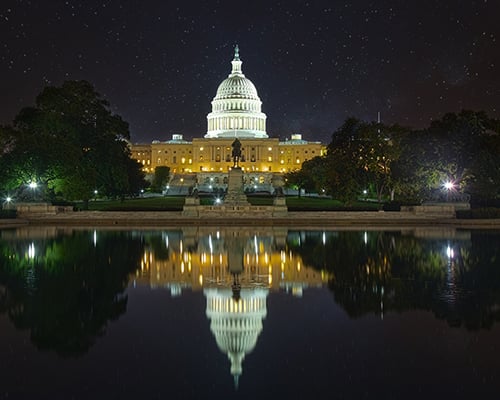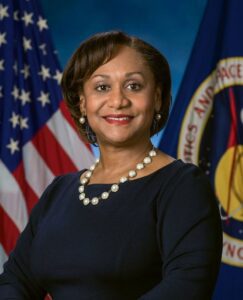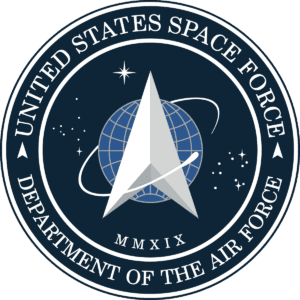Public Policy and Government Affairs
Biweekly Washington, D.C., Update for the Week Ending December 17, 2021
Written by: Elizabeth Anderson

This week in Washington, D.C., the National Defense Authorization Act (NDAA) passed the Senate, the Federal Aviation Administration (FAA) announced an end to the Commercial Astronaut Wings Program, and the Biden Administration nominated Frank Calvelli to direct Space Force acquisitions. Former US Senator Bob Dole and Former Johnson Space Center Director Mark Geyer both passed away this week.
US Space Policy Updates
- Former Johnson Space Center Director Mark Geyer passed away at the age of 63 (NASA, December 7)
- Space Force launched experimental payloads in the Space Test Program in an attempt to progress military and civil space technologies (Defense News, December 7)
- The recently passed NASA Enhanced Use Leasing Extension Act allows NASA to lease its underutilized properties (HR 5742 – NASA Enhanced Use Leasing Act 2021, December 8)
- The Senate approved legislation to raise the debt ceiling (The New York Times, December 9)
- The Federal Aviation Administration has announced an end to the Commercial Space Astronaut Wings program (FAA, December 10)
- DARPA launched a program to test bio-manufacturing in space (Breaking Defense, December 10)
- Satellite operators voice growing concerns with mega constellations (Space News, December 14)
- President Biden selected Frank Calvelli to direct Space Force acquisitions (White House, December 15)
- Congress passed the 2022 National Defense Authorization Act (HR 4350 – National Defense Authorization Act, December 15)
- The NDAA includes an additional $645.7 million for Department of Defense space programs (Space News, December 16)
- NASA assigned astronauts to its Crew-6 mission (NASA, December 16)
- A faulty cable was responsible for the latest James Webb Space Telescope launch delay (Space.com, December 16)
International Space Policy Updates
- South Korea’s Hanhwa Group will build a small-payload launcher in collaboration with the Korean Aerospace Research Institute (Hanhwa, December 6th)
- President Putin visited Prime Minister Modi in New Delhi to cement and expand military collaboration in land and aerospace domains (The Wall Street Journal, December 6th)
- A Russian Soyuz rocket carried two Japanese billionaires and a Cosmonaut to the ISS for a two-week stay (Space.com, December 7th)
- Roscosmos has chosen its first cosmonaut for an eventual SpaceX commercial crew mission to the ISS, Anna Kikina (Space News, December 9th)
- Mexico has signed and joined the Artemis Accords (Government of Mexico, December 10th)
- China sent classified satellites into orbit with its 400th Long March rocket launch (Space News, December 10th)
- Australia and South Korea strengthen ties with a memorandum of understanding on space cooperation (Prime Minister of Australia, December 13th)
- China’s Kuaizhou-1A failed a launch attempt (NASA Spaceflight, December 15th)
Industry Space Updates
- Lockheed Martin awarded Valley Tech Systems a $94 million subcontract for next generation missile interceptors (Valley Tech Systems, December 6th)
- Aerospace propulsion company Ursa Major Technologies raised $85 million in Series C funding (TechCrunch, December 7th)
- Planet Labs began trading publicly on the NYSE (Bloomberg, December 7th)
- Chinese company Galactic Energy successfully launched their Ceres-1 rocket (NASA Spaceflight, December 7th)
- Jeff Bezos’ Blue Origin launches a crew of six notable figures into space (com, December 12th)
- Elon Musk was named Time Person of the Year (Time, December 13th).
- Rocket Lab purchased SolAero Holdings, a space solar power manufacturer (Rocket Lab, December 13th)
- The NOAA licensed Albedo to sell imagery 10-centimeter per pixel (Space News, December 14th)
- STM startup Kayhan Space received $3.7 million in seed funding (Space News, December 14th)
- Reusable rocket producers Stoke Space raised $65 million in Series A funding (Space News, December 15th)
- Space Force has tasked Raytheon Intelligence & Space with building a weather satellite prototype (Raytheon Intelligence and Space, December 15th)
Space Leader Profile

Vanessa Wyche currently serves as the Director of NASA’s Johnson Space Center in Houston, Texas. As Director, she oversees more than 10,000 civil employees and contractors and a broad range of human spaceflight activities. She served as Acting Director of JSC since May 3, 2021 and Deputy Director of JSC from 2018-2021. Wyche’s first position at NASA was as Project Engineer in the Space Life Sciences Directorate, where she helped develop biomedical hardware to fly on the Space Shuttle.
Wyche earned her BS and MS in Bioengineering from Clemson University in South Carolina and spent time at the Food and Drug Administration prior to joining NASA in 1989. Over the course of her career, she has received two NASA Outstanding Leadership Medals, two NASA Achievement Medals, is a “Women at NASA” awardee, and is the first Black woman in history to lead a NASA center.
Reading Corner
Space News | How the US can quickly build greater resiliency in space
In this op-ed, Sarah Mineiro recommends five principles to be embraced by government to quickly build greater resiliency in space.
Fun Fact

December 20th, 2021 marks the two year anniversary of the creation of the United States Space Force.

